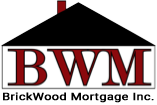The Home Equity Conversion Mortgage (HECM) program offers a unique financial solution for homeowners aged 62 and older. With a HECM reverse mortgage, eligible borrowers can convert a portion of their home equity into tax-free funds without having to sell their home or make monthly mortgage payments. While this program provides financial flexibility and security, it is essential for borrowers to understand their payment obligations to make informed decisions. Today, we will explore what borrowers are required to pay on a HECM reverse mortgage, specifically focusing on the HECM program in South Carolina.

Understanding HECM Reverse Mortgages
A HECM reverse mortgage is a loan insured by the Federal Housing Administration (FHA) that allows homeowners to access the equity in their homes. The loan is repaid when the borrower no longer occupies the home as their primary residence.
Eligibility Requirements
To qualify for a HECM reverse mortgage, borrowers must meet certain eligibility criteria. These include being at least 62 years old, owning a home that serves as their primary residence, and having sufficient equity in the property. Additionally, borrowers are required to attend a counseling session with a HUD-approved counselor to ensure they understand the program and its implications.
Loan Proceeds
Once approved for a HECM reverse mortgage, borrowers have several options for receiving their loan proceeds. They can choose to receive a lump sum payment, establish a line of credit, or opt for monthly payments; the choice depends on their financial needs and goals.
Mandatory Payments
While HECM reverse mortgages do not require borrowers to make monthly mortgage payments, there are certain mandatory payments they must fulfill. These include:
Property Taxes: Borrowers are responsible for paying property taxes on their homes. Failure to pay property taxes can result in foreclosure, so it’s critical to stay on top of this.
Homeowners Insurance: Also, borrowers must maintain adequate homeowners insurance coverage on their property to protect against damages and liability.
Home Maintenance: As normal, it’s the borrower’s responsibility to keep the home in good condition. Regular maintenance, repairs, and upkeep are essential to preserve the value of the property.
Interest and Mortgage Insurance Premiums: HECM reverse mortgages accrue interest over time, which is added to the loan balance. Borrowers are responsible for paying the accumulated interest when the loan becomes due. Also, borrowers are required to pay mortgage insurance premiums (MIP) to protect the lender and ensure the viability of the HECM program.
Optional Payments
While not mandatory, borrowers have the option to make voluntary payments towards their HECM reverse mortgage. These payments can help reduce the loan balance and interest accrual, increasing the remaining equity in the home.
Repayment of the Loan
The HECM loan becomes due when the borrower no longer occupies the home as their primary residence. At that point, the borrower or their heirs have several options to repay the loan. For example, they can sell the home and use the proceeds to repay the loan. Alternatively, they can refinance the loan into a conventional mortgage or pay off the loan using other personal funds.
Protection for Non-Borrowing Spouses
In the event that one spouse is not listed as a borrower on the HECM reverse mortgage, there are protections in place. The non-borrowing spouse can continue to live in the home even if the borrowing spouse passes away or moves out, as long as certain conditions are met.
Tax Implications
Like most forms of finance, HECM reverse mortgages have specific tax implications. Borrowers are advised to consult with a tax professional to understand the potential impact on their individual tax situation.
Pros and Cons of HECM Reverse Mortgages
HECM reverse mortgages offer several benefits, such as providing additional income in retirement, eliminating monthly mortgage payments, and allowing borrowers to stay in their homes. However, it is important to weigh the pros and cons before deciding. Factors to consider include the costs associated with the loan, the potential impact on inheritance, and long-term financial planning.
Alternatives to HECM Reverse Mortgages
While HECM reverse mortgages can be a suitable option for some homeowners, there are alternatives worth exploring. These may include downsizing to a smaller home, exploring other loan programs, or utilizing other financial strategies to meet specific needs and goals.
Conclusion
In summary, HECM reverse mortgages offer an attractive solution for older homeowners looking to tap into their home equity without the burden of monthly mortgage payments. Borrowers in South Carolina can take advantage of the HECM program to unlock the value of their homes and improve their financial well-being. By understanding their payment obligations and exploring the benefits and alternatives, borrowers can make informed decisions regarding reverse mortgages and determine if it aligns with their specific needs and goals.
Unlock Financial Freedom with an HECM Reverse Mortgage
Take control of your retirement with BrickWood Mortgage, Inc. and an HECM Reverse Mortgage! Our professional are here to guide you every step of the way. Call us today at (843) 314-4101 to explore your options!
Lorem ipsum dolor sit amet, consectetur adipiscing elit. Ut elit tellus, luctus nec ullamcorper mattis, pulvinar dapibus leo.
